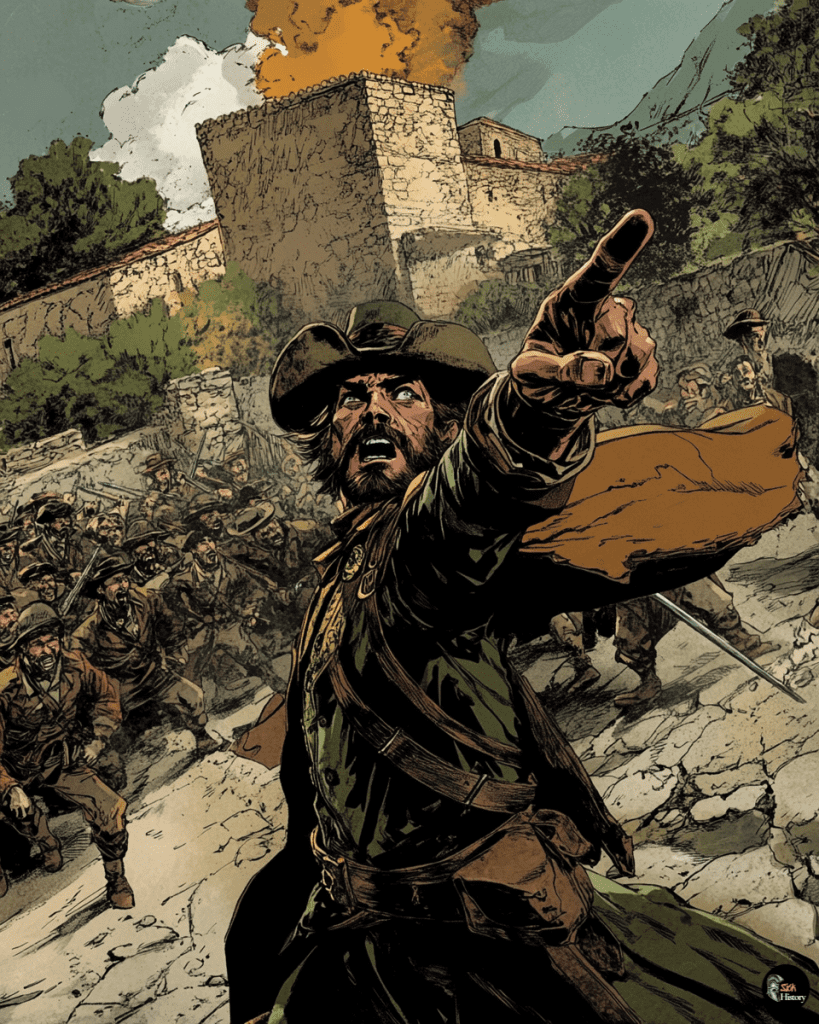In a remote Spanish village nestled in the Sierra de los Filabres mountains, an unusual conflict began on October 14, 1883. The tiny town of Líjar, with a population of just a few hundred, declared war on France over a perceived insult to their monarch, King Alfonso XII.
The incident that sparked this declaration occurred during King Alfonso’s state visit to Paris. According to local tradition, the Spanish king faced hostility from Parisian crowds.
Outraged by this disrespect, Líjar’s mayor at the time, Miguel García Sáez, took the extraordinary step of issuing a formal declaration of war against France.
This symbolic conflict, known as the Líjar Incident, lasted for nearly a century without a single shot being fired. The war officially ended in 1983 when Líjar’s then-mayor, Diego Sánchez Cortés, signed a peace treaty with a French representative.
This peculiar chapter in history serves as a testament to the fierce loyalty and pride of a small Spanish village, as well as the sometimes absurd nature of international relations.
The Líjar Incident of 1883
In 1883, a small Spanish village called Líjar made headlines by declaring war on France. This unusual conflict stemmed from perceived insults to the Spanish monarch and lasted, at least symbolically, for 100 years.
Prelude to the Conflict
Líjar, a tiny village nestled in the Sierra de los Filabres in Almería, Spain, was an unlikely player on the international stage. The village, with its modest population, had little connection to global politics.
However, events in Paris would soon thrust Líjar into an unexpected confrontation with France.
In September 1883, King Alfonso XII of Spain embarked on a diplomatic visit to several European countries. This journey was intended to strengthen Spain’s international relations and assert its position among European powers.
The Offense to King Alfonso XII
During King Alfonso XII’s visit to Paris on September 29, 1883, an unfortunate incident occurred. As the Spanish monarch traveled through the city, he was met with hostility from a group of Parisian citizens. The crowd reportedly pelted the king with stones and hurled insults at him.
This act of disrespect towards the Spanish monarch quickly became a point of contention. While official diplomatic channels between Spain and France worked to smooth over the incident, news of the affront spread across Spain, reaching even the remote village of Líjar.
Mayor Miguel Garcia Saez’s Reaction
Upon hearing of the insults directed at King Alfonso XII, Líjar’s mayor, Miguel Garcia Saez, took an unprecedented step. On October 14, 1883, Mayor Garcia Saez convened the town council for an emergency session.
During this meeting, the mayor proposed a radical response to the perceived slight against their monarch. With the full support of the council, Garcia Saez officially declared war on France.
The declaration stated that the action was taken because “Our King Alfonso, when passing through Paris on the 29th day of September, was stoned and offended in the most cowardly fashion by miserable hordes of the French nation.”
Mayor Diego Sanchez Cortes and Subsequent Actions
For the next century, Líjar maintained its symbolic state of war with France. The conflict, while never involving any actual fighting, became a part of the village’s identity.
Successive mayors upheld the declaration, passing down the story of Líjar’s defiance through generations.
In 1983, nearly 100 years after the initial declaration, Mayor Diego Sanchez Cortes took center stage in this long-standing dispute. Recognizing the approaching centennial of the conflict, Sanchez Cortes saw an opportunity to bring closure to this unusual chapter in Líjar’s history.
The Aftermath and Reconciliation
Mayor Diego Sanchez Cortes initiated efforts to formally end the state of war between Líjar and France. He reached out to French officials, inviting them to participate in a peace ceremony to mark the end of the 100-year conflict.
The reconciliation event was a celebratory affair, drawing attention from both Spanish and international media. It served as a lighthearted reminder of the incident that had sparked the declaration a century earlier.
With the signing of a peace agreement, Líjar’s war with France officially came to an end. The village’s bold stand, initially taken in defense of their monarch’s honor, had become a quirky historical footnote and a source of local pride.

